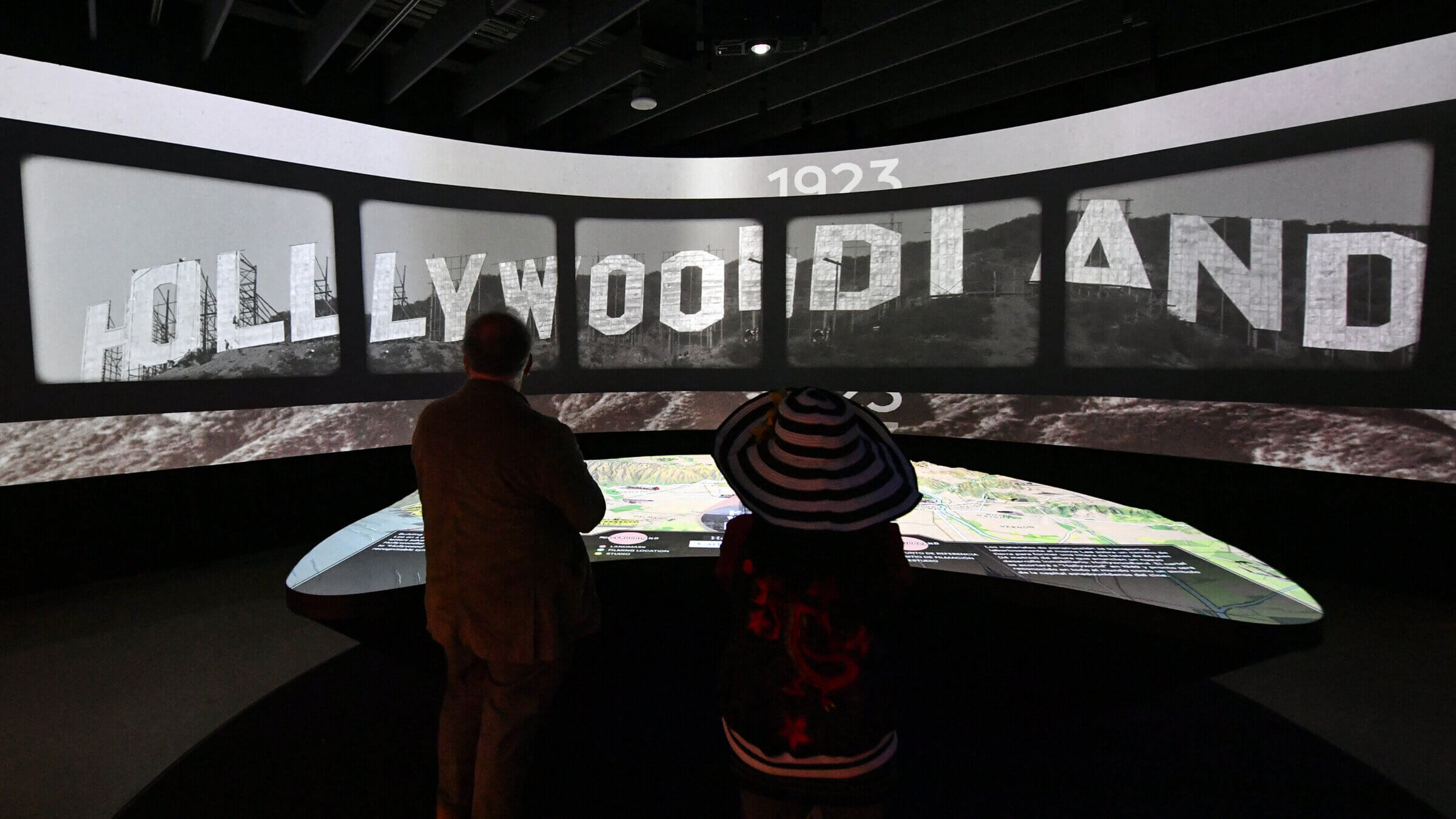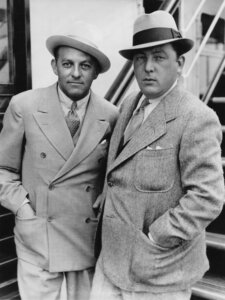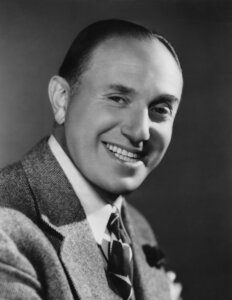Antisemitism isn’t the only reason Hollywood Jews are upset about that Academy Museum exhibit
The exhibit celebrates Hollywood’s Jewish founders while also not shying away from some hard truths

Visitors attend “Hollywoodland: Jewish Founders and the Making of a Movie Capital.” Photo by Getty Images
“Hollywoodland: Jewish Founders and the Making of a Movie Capital,” the Academy Museum of Motion Pictures’ first permanent exhibition, opened in May with a splashy press preview followed by a weekend of celebratory events. But the exhibit’s honeymoon lasted less than two weeks before the major kvetching and allegations of antisemitic content started.
TV writer and producer Michael Kaplan claimed the exhibit demonized Hollywood’s Jewish founders by mentioning Universal Studios head Carl Laemmle’s “nepotism”; Warner Bros. head of production Jack Warner’s “womanizing” and his studio president older brother Harry Warner’s “frugal” approach to filmmaking; and Columbia Pictures’ boss Harry Cohn’s “reputation as a tyrant and a predator.”
Six days later, the New York Times reported the museum would implement immediate changes to tell the founders’ stories “without using phrasing that may unintentionally reinforce stereotypes.” Anti-Defamation League CEO Jonathan A. Greenblatt told the Times, “we’re both shocked and surprised that the Academy made an effort to get this right and somehow seems to have gotten it wrong.”
Meanwhile, the Los Angeles Times reported a group called United Jewish Writers sent an open letter to the museum with approximately 350 signatories – including David Schwimmer, writer Amy Sherman-Palladino and producer Lawrence Bender — who also objected to the exhibit.
True, “Hollywoodland” is not perfect. I found a couple instances of “presentism” (the tendency to interpret past events in terms of modern values and concepts) annoying – especially in the exhibition’s otherwise wonderful 30-minute documentary From the Shtetl to the Studio: The Jewish Story of Hollywood. But as the exhibit evolves, I feel confident that “Hollywoodland” curator Dara Jaffe will incorporate correctives with future programming and content.

A museum’s fundamental mission is telling historical truths. Whitewashing the past undermines an institution’s credibility and, in the case of Hollywoodland, is ineffective at combating antisemitism. If anything, papering over the moguls’ flaws could be weaponized into accusations of conspiratorial Jews hiding the facts.
For truth and transparency’s sake, when I discuss my great-grandfather Sol M. Wurtzel, Fox Film’s head of West Coast production from 1917-1935 and head of 20th Century Fox’s B-unit from 1935-1949, I cover his entire character and career – including some of the very words the open letter found objectionable in the exhibition’s description of the moguls.
My great-grandfather did, in fact, like much of Hollywood, engage in nepotism — he hired about 20 Wurtzel relatives to work on the Fox lot. In the “womanizing” department, Sol had consecutive long-term affairs with two blonde starlets 20 years his junior, both of whom acted in his films. And as far as frugality is concerned, Sol’s notoriety as a penny-pinching “King of the B’s” helped keep Fox afloat during the Depression.
Some of Sol’s employees did find him tyrannical and oppressive — especially during the cost-cutting 1930s and 1940s. One of Sol’s screenwriters referred to the Fox B-unit under his reign as “the land of scared men.”
My great-grandfather — who oversaw the production of ethereal, Academy Award-winning silent classics Sunrise and 7th Heaven – had abundant warts. Ultimately, he was a multifaceted Jewish human and a powerful businessman who fostered cinematic artistry in Hollywood’s infancy and helped develop moving pictures into the globe’s most popular form of entertainment. Nothing antisemitic to be ashamed of there.
Bender, the Academy Award-nominated producer of the films Good Will Hunting, Pulp Fiction and Inglourious Basterds told Los Angeles Magazine he found the exhibit “uninspired” and “joyless.” I disagree.

The “Hollywoodland” documentary, which runs on a continuous loop in the exhibition, demonstrates plenty of inspired joy in the form of clips from the Golden Age’s most iconic films including Singing in the Rain, The Wizard of Oz and Miracle on 34th Street. Ben Mankiewicz’s narration emphasizes that the moguls embraced the “power of movies to transform and transport.” Furthermore, the personal letters on display demonstrate the moguls’ humor and passion for filmmaking.
So, why all the angsty allegations? The kvetching over “Hollywoodland” seems to reveal deeper insecurities in the world’s filmmaking capital — particularly present-day Hollywood Jews’ fears about their future relevance. The same day the United Jewish Writers’ open letter surfaced the Los Angeles Times published a cover story titled “Film, TV jobs picture remains bleak.”
The story questioned the future viability of “Hollywood’s bread and butter – the feature film made for the big screen.” UCLA film historian Jonathan Kuntz said, “The very basis of what made Hollywood universally popular in the 20th century was the theatrical feature film. That seems to be ending now . . . the audience has moved on to other things.”
For filmmakers of Bender’s generation, the future may seem bleak. But over a century ago, my great-grandfather and his compatriots equated filmmaking with creativity and opportunity. “Hollywoodland,” far from fostering antisemitism, celebrates their achievements and, with thoughtful context and curation, will continue to do so.
























